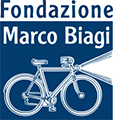The interdependence among health, work and economic performance is highlighted during health and economic crises. At such times, it is useful to remember that health is a right, as are work, equal opportunities, social and professional integration and the well-being of individuals. The multidisciplinary area deals with the connection between work and health and the planning and evaluation of economic, social, organisational and regulatory interventions in favour of workers and their families. The area will also be able to provide research approaches as part of the implementation of the objectives of Mission 6 of the National Recovery and Resilience Plan, with particular reference to the impact of the planned interventions on the dimensions of health and work in the sector.
From this perspective, the following topics are of interest
• Digital, agile and flexible work in the public and private sectors: implications for health, quality of work and work-life balance
• Diversity management: segregation or well-being?
• Organisational well-being, work-life balance and models of legal and organisational regulation of employment relationships
• Analysis of the relationship between well-being (individual, organisational, social…), labour productivity, employment and innovation in companies and society
• Determinants of organisational inclusion and consequences for well-being at work
• Construction of composite indicators of individual, relational and organisational well-being
• Big data management models in health care
• Reasonable accommodation, inclusion and access to employment by vulnerable workers
• Models and techniques for preventing health risks between the work environment and the natural environment
• Mental health and social protection
• Safety, security and accident prevention in remote work
• Health, disability and care. A gender perspective
• Long-term caregiving and health: implications for work and policy proposals
• Gender and health differences in family caregivers
• Gender inequalities in informal care in the context of demographic change
• The impact of population ageing on labour supply and demand, productivity and quality at work
• The role of migrants in care work
• The relationship between the supply of health and social care work and the quality of services provided to citizen
• The production of human capital in the health sector
• Social-welfare integration models for chronic disease management
• Barriers and facilitators in the process of technology transfer and digitalisation of health services.
Referees
prof.ssa Ylenia Curzi, prof. Roberto Pinardi, prof.ssa Barbara Pistoresi,
Disciplinary areas
Labour and Industrial Economics and Public Policy Evaluation, Labour Law and Industrial Relations, Economic Statistics, Organization and Human Resource Management, Psychiatry, Occupational Medicine, Health Economics and Policy, Cognitive Neurology.

